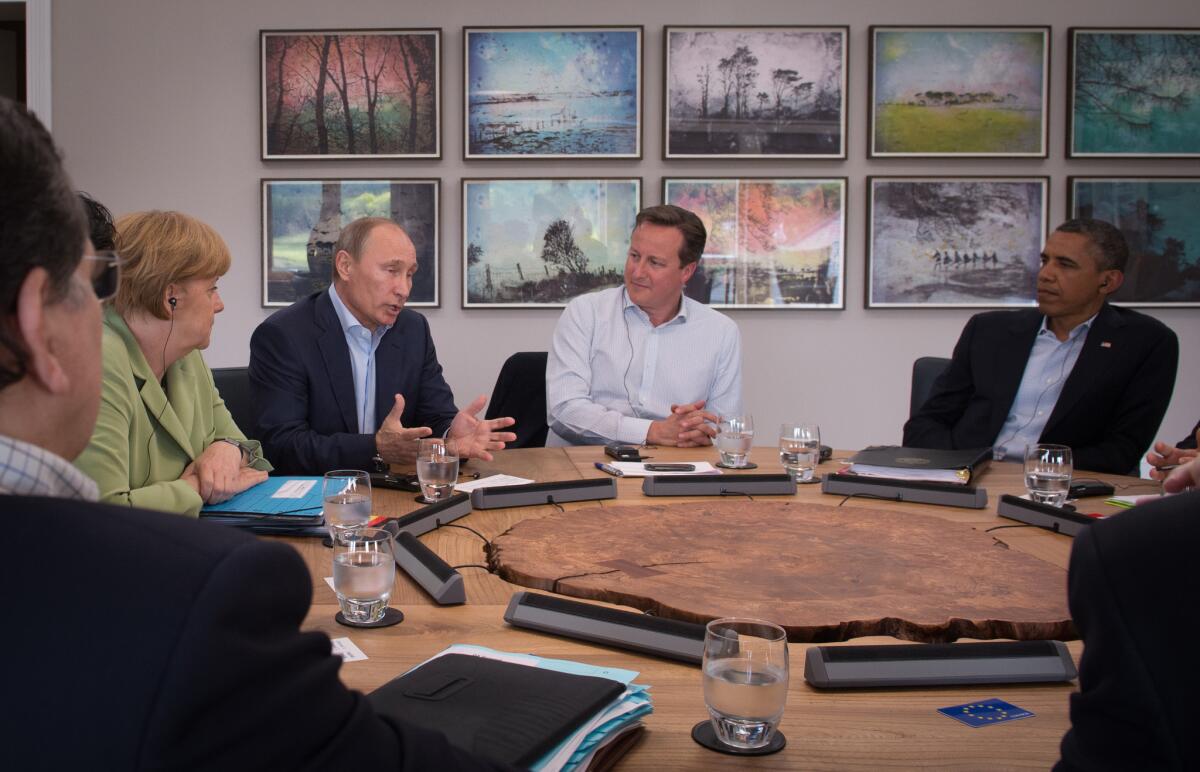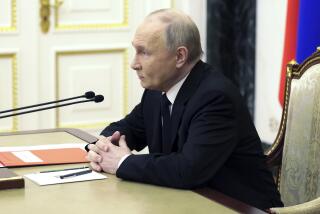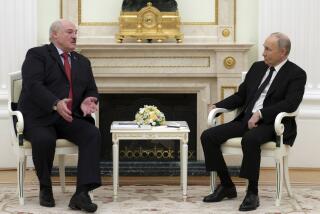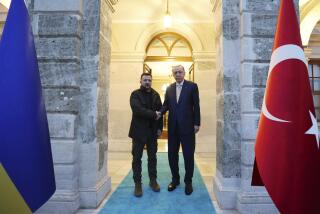G-8 leaders back Syrian peace talks but differ on Assad

ENNISKILLEN, Northern Ireland -- President Obama, Russian President Vladimir Putin and other world leaders joined forces Tuesday in seeking a negotiated Syrian peace settlement that would forge a “united, inclusive and democratic” government -- but couldn’t agree on whether this means President Bashar Assad must go.
The declaration at the end of the two-day Group of 8 summit sought to narrow the diplomatic chasm between Assad’s key backer, Russia, and Western leaders who together have been trying to start peace talks in Geneva to end a two-year civil war that has claimed more than 90,000 lives.
The declaration said the country needs a new coalition government with “a top leadership that inspires public confidence.” It made no reference to the possibility of sending U.S., British or French weapons to rebels, an option being kept open by all three G-8 members.
Russia refused to back any declaration that made Assad’s ouster an explicit goal, arguing that it would be impossible to start peace talks with a predetermined outcome.
Reflecting the profound divisions that remain, the British host, Prime Minister David Cameron, declared in response to reporters’ questions that it was “unthinkable that President Assad can play any part in the future government of his country. He has blood on his hands. He has used chemical weapons.”
Putin, speaking simultaneously at a different location in a gesture that some diplomats construed as rude, rejected Cameron’s views as unproved and warned that weapons sent to Syria might end up being used to kill people in Europe.
“There are many such criminals in the ranks of the [Syrian] opposition, such as those who committed the brutal murder in London,” Putin said, referring to last month’s killing of an off-duty British soldier in London by ax- and knife-wielding Muslim extremists. “Do the Europeans want to provide such people with weapons? ... We are calling on all our partners to thoroughly think it over again before taking this very dangerous step.”
Reflecting growing unease at the behavior of some militants in the ranks of Syria’s splintered opposition forces, the G-8 declaration said participants in any peace talks must agree to expel Al Qaeda-linked fighters from the country.
The declaration condemned human rights abuses committed by government forces and rebels alike, and called on both sides to permit access by U.N.-led experts trying to investigate the contentious claims of chemical weapons use.
In its only concrete commitment, the declaration commits an additional $1.5 billion in aid for Syrians driven from their homes by the conflict: 4.2 million of them within Syria and 1.6 million more taking refuge in neighboring countries.
The G-8 noted that the new funds would cover only part of the United Nations’ 2013 appeal for $5.2 billion in Syria-directed aid.
ALSO:
G-8 leaders vow to go after global tax cheats
U.S. says Taliban agrees to Afghanistan peace talks
Russian lawmakers pass ban on adoption tied to gay foreign couples
More to Read
Start your day right
Sign up for Essential California for news, features and recommendations from the L.A. Times and beyond in your inbox six days a week.
You may occasionally receive promotional content from the Los Angeles Times.






